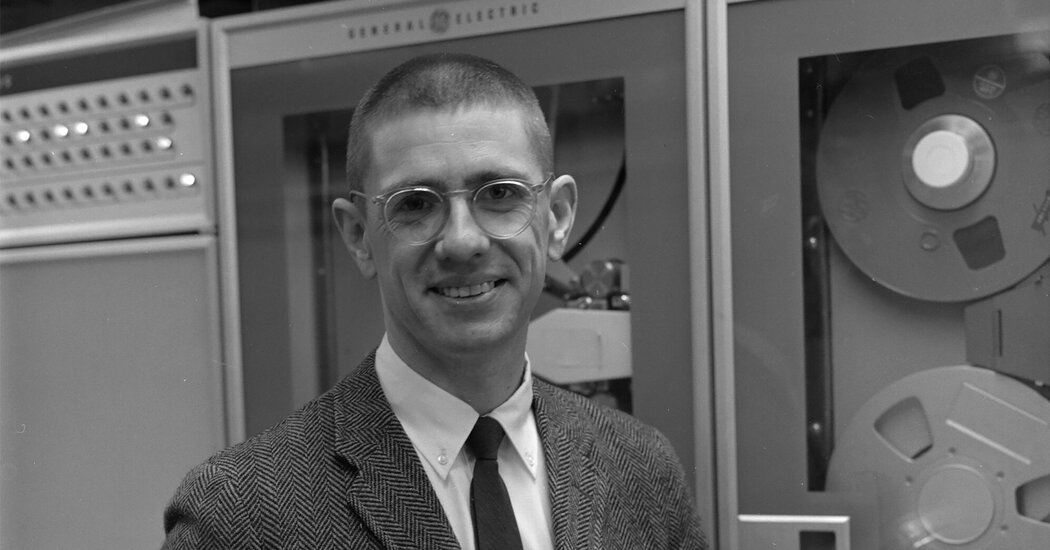
Thomas E. Kurtz, a pioneering mathematician at Dartmouth and an inventor of the simplified computer programming language known as BASIC, which allowed students to easily operate early computers and eventually propelled generations into the world of personal computing, died on Tuesday in Lebanon, N.H. He was 96.
The cause of his death, in a hospice, was multiple organ failure from sepsis, said Agnes Kurtz, his wife.
In the early 1960s, before the days of laptops and smartphones, a computer was the size of a small car and an institution like Dartmouth, where Dr. Kurtz taught, had just one. Programming one was the province of scientists and mathematicians, specialists who understood the nonintuitive commands used to manipulate data through the hulking machines, which processed data in large batches, an effort that sometimes took days or weeks to complete.
Dr. Kurtz and John G. Kemeny, then the chairman of Dartmouth’s math department, believed that students would increasingly come to depend on computers and would benefit from understanding how to use them.
“We had the crazy idea that our students, our undergraduate students who are not going to be technically employed later on, social sciences and humanities students, should learn how to use the computer,” Dr. Kurtz said in an interview for Dartmouth in 2014. “Completely nutty idea.”
The two mathematicians created the Dartmouth Time-Sharing System, which allowed multiple users to share the processing power of a single computer simultaneously. It replaced a system under which one person had to reserve time to use the computer and relinquish it before the next person could use it.






